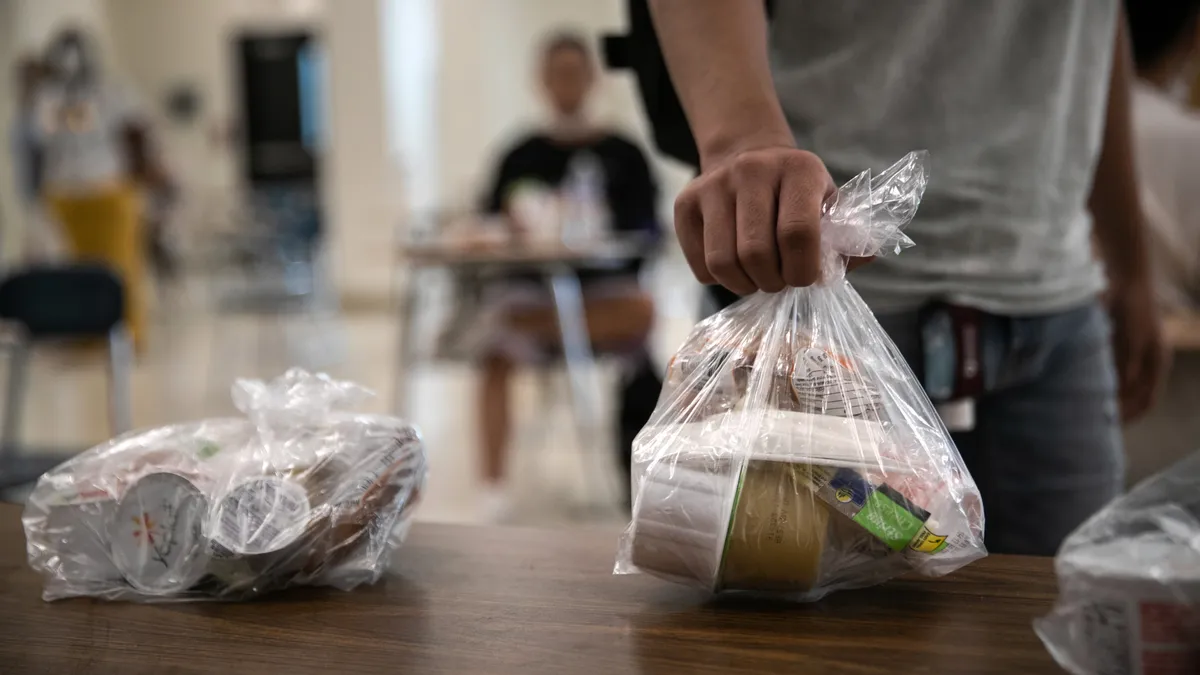Dive Brief:
- The U.S. Department of Agriculture has announced the launch of a $100 million Healthy Food Incentive Fund to support school meal programs that “innovate and accelerate” initiatives to improve the nutritional quality of school meals. The fund will be used to support peer-to-peer learning and recognize successful programs and leaders.
- The program is part of an overall USDA framework to help overcome food supply chain problems. As part of the USDA’s efforts, the agency plans to invest an additional $60 million to increase commodity purchases through farm-to-school programs.
- The Food Research and Action Center, a nonprofit aiming to end poverty-related hunger, praised the moves while also calling on “Congress to give USDA the tools it needs to respond to the ongoing crisis created by the pandemic and extend USDA nationwide waiver authority through the 2022–2023 school year in the next legislative vehicle.”
Dive Insight:
The USDA’s announcement to fund innovative school meal programs comes as its authority to grant pandemic era waivers, which include universal school meals, is set to expire June 30.
Meanwhile, Vermont became the latest state to sign off on using state funding to continue its own universal school meal program, now that Gov. Phil Scott signed the measure into law Tuesday. This move comes as school nutrition directors look to navigate the next school year with and without universal school meal programs.
In Vermont, 85,000 students would have lost access to free meals if the legislation for universal meals had not passed, according to Faye Mack, education and advocacy director for Hunger Free Vermont. The new program will cost $29 million annually.
Mack previously told K-12 Dive that the pandemic shifted the conversation so communities began to broadly and better understand the value of free meals in schools.
Vermont’s efforts signal a growing momentum among states to secure universal school meals as federal attempts to do so wane.
In Colorado, state lawmakers approved a referendum allowing voters to decide in November if they want a universal school meal program starting in 2023. And in Massachusetts, the state House passed a budget including $110 million to fund universal school meals for one year, as the state’s Senate debates its final budget proposal.
Meanwhile, California and Maine last year were among the first states to enact statewide free school meals.
One nutrition director in Colorado, a state that will soon lose universal school meals without the federal waivers, expects meal prices to rise by 50 to 75 cents next school year. That increase will pose a challenge to the school community, since prices haven’t risen and school meals have been free for the past two years, Jessica Gould, nutrition services director for Littleton Public Schools in Colorado, previously told K-12 Dive.
“It’s going to be a sticker shock for sure for some of our families,” Gould said.












